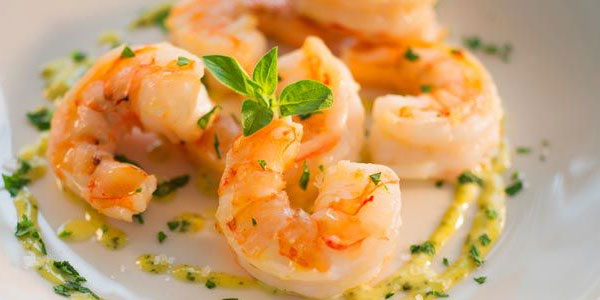
If you want to get the most out of shrimp for your culinary creations, there are a few things you need to know about them to make the most of their potential. Shrimp are somewhat more enigmatic than other types of seafood. Many customers are unsure whether they should steer clear of shrimp or dive right into the cocktail featured on almost every holiday menu. Suppose you're a fan of seafood and want to consume these crustaceans, either cold or cooked. In that case, there are a few things you need to be aware of, including the following seven points: Below, you can find some essential information regarding shrimp that you should be mindful of.

They're Low in Calories
There are around seven calories in a medium shrimp, which implies that a dozen shrimp have less than 85 calories together. This is approximately 15 fewer calories than a 3-ounce chicken breast. Jumbo shrimp are the type of shrimp that are typically served in shrimp cocktails. One jumbo shrimp has approximately 14 calories, and a teaspoon cocktail sauce has 5. Therefore, three jumbo shrimp, each with a teaspoon of cocktail sauce as
They're protein-rich
In addition to being mostly composed of water, shrimp also contain a significant amount of protein. About 20 grams of protein can be found in a three-ounce serving of shrimp that has been baked or broiled; this is just a few grams less than what can be found in a three-ounce serving of chicken breast. About three grams may be found in a single giant shrimp with a negligible amount of fat and carbohydrate.

They Provide Key Nutrients
In addition to the protein they give, shrimp are a good source of a diverse range of nutrients. Steamed four ounces has more than one hundred percent of the Daily Value for selenium, more than seventy-five percent of the Daily Value for vitamin B12, more than fifty percent of the Daily Value for phosphorous, and more than thirty percent of the Daily Value for choline, copper, and iodine. In addition, while we do not normally consider animal proteins to be sources of antioxidants, shrimp does include two different kinds.
And just when you thought it couldn't get much better for those of you who like shrimp, these crustaceans are also abundant in a variety of essential nutrients that our bodies need. Because of the somewhat high concentrations of vitamin B12, phosphorous, choline, copper, and iodine that are found in our bodies, they are able to operate to their full potential. In addition to its vitamin and mineral content, shrimp is also a good source of two different types of antioxidants. When taken, these antioxidants defend the body against free radicals, which are dangerously small particles that may harm DNA and cells, which can eventually lead to diseases like cancer. Astaxanthin is an antioxidant that specifically targets inflammation and has been shown to slow down the ageing process.
They're A Common Allergen
Shrimp, which belongs to the shellfish family, is considered one of the most common allergies. Other common allergens include milk, eggs, fish, tree nuts, peanuts, wheat, soy, and shellfish. Those allergic to shellfish and who come into contact with shrimp may have a severe response, including anaphylaxis, which risks their lives. At any age, a person is at risk of developing a food allergy. Visit an allergist as soon as possible for testing if you have any suspicion that you may have an allergy to shrimp or any other food.
Containing A Lot of Cholesterol
The first kind of cholesterol is "dietary cholesterol," which is the cholesterol found in foods. Cholesterol can only be found in foods derived from animals since cholesterol is created naturally in animal bodies. The cholesterol found in your blood, also known as serum cholesterol, is the second kind of cholesterol. This cholesterol is located inside your body. Your liver is responsible for blood cholesterol production, which is then delivered into your circulation.
Unless it has been deep-fried or prepared in another manner that adds trans fat, shrimp has a very low level of saturated fat and does not contain any trans fat. However, if you already have high cholesterol, you should listen to what your doctor says regarding the cholesterol in your diet.

Fraud with Shrimp
Oceana reported in their most recent research that out of 143 shrimp items evaluated from 111 different sellers around the country, 30% were found to contain false information. Unfortunately, as a customer, there is not much you can do about this situation; however, if you are interested in additional information about selecting shrimp that has been correctly labeled, check out this helpful resource from Seafood Watch.



